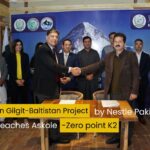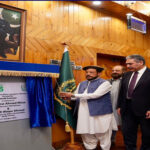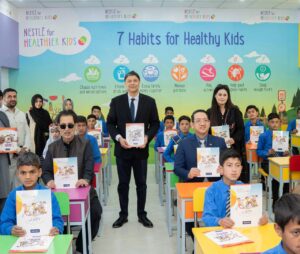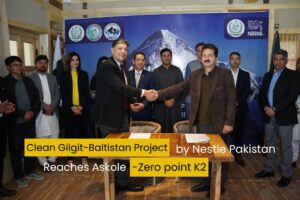The facility was established in 2013 as part of the Italian government’s project Social Economic Environment Development (SEED). It was funded by Ev-K2-CNR, a non-profit organisation that aims to promote scientific and technological research in mountainous regions.
“The news is very promising,” said Gilgit EPA Assistant Director Khadim Hussain while talking to The Express Tribune on Tuesday. Hussain said WQTL is a very well-maintained facility with top-of-the-line equipment and trained personnel, adding the certification is a major leap for the project which is still in its preliminary stages.
The laboratory is headed by assistant professor Maisoor Nafees. He credited KIU Vice Chancellor Dr Asif Khan and Dr Andrea Lami from the Institute of Ecosystem Studies, Verbania, Italy for the capacity-building of laboratory staff and calibration of the equipment.
“The accreditation has enabled us to reach out to the general public of G-B. With the help of our research we will be able to outsource services to public and private sector organisations,” Nafees told The Express Tribune. “This will ensure the provision of potable water to communities living in remote areas,” he added.
The laboratory was set up in order to assess the quality of water supplied to villages surrounding the Central Karakoram National Park (CKNP), the largest national park in Pakistan. CKNP covers an area of about 10,000 square kilometres, encompassing some of the world’s highest peaks and largest glaciers. Hence the largest source of freshwater for the region is the glaciers that cover almost 40% of the park. The project aims to benefit over 90,000 people living in around 230 villages.
The yardstick
The criteria for EPA certification covers several aspects essential to a health facility including cleanliness, waste management, disposal of effluents and gas emissions.
In addition to this, the laboratory should be staffed by qualified personnel, have state-of-the-art apparatus and follow recognised methods of analyses and research.
Express Tribune























